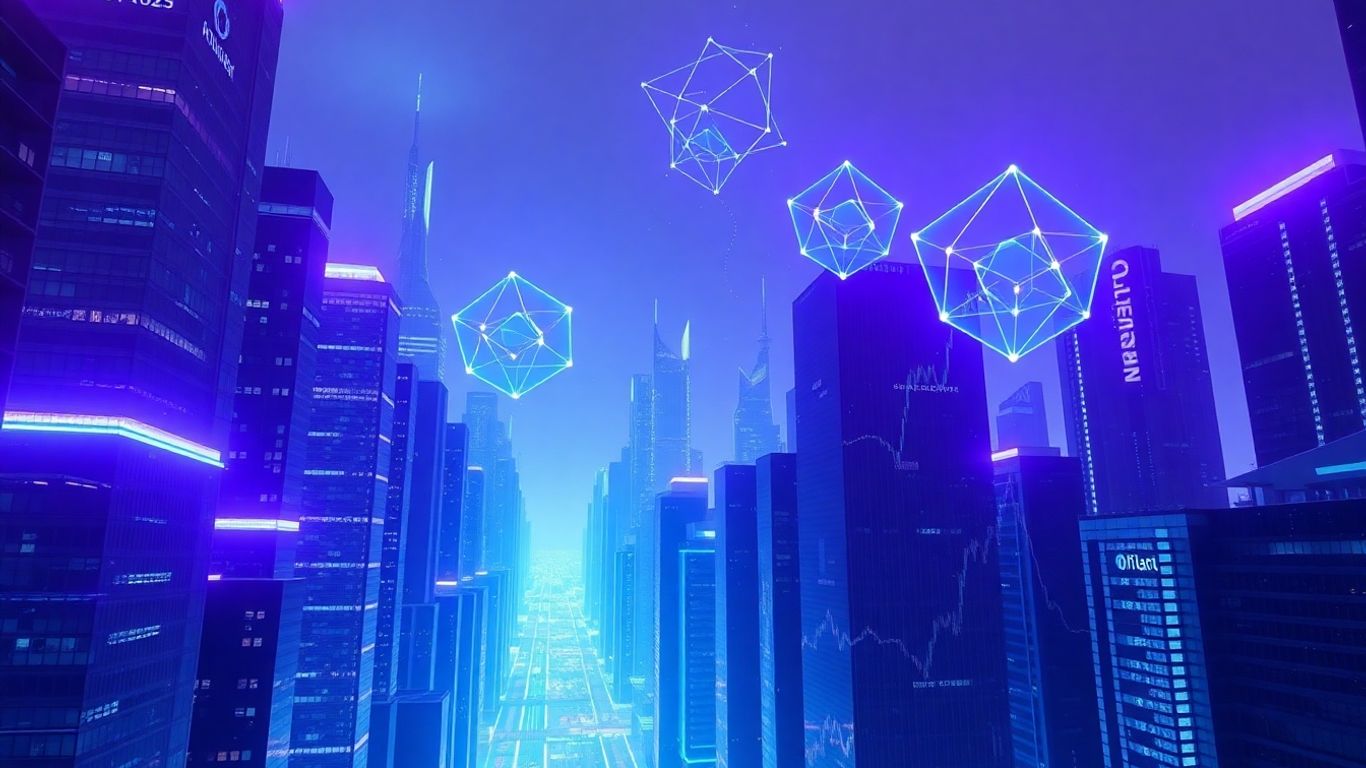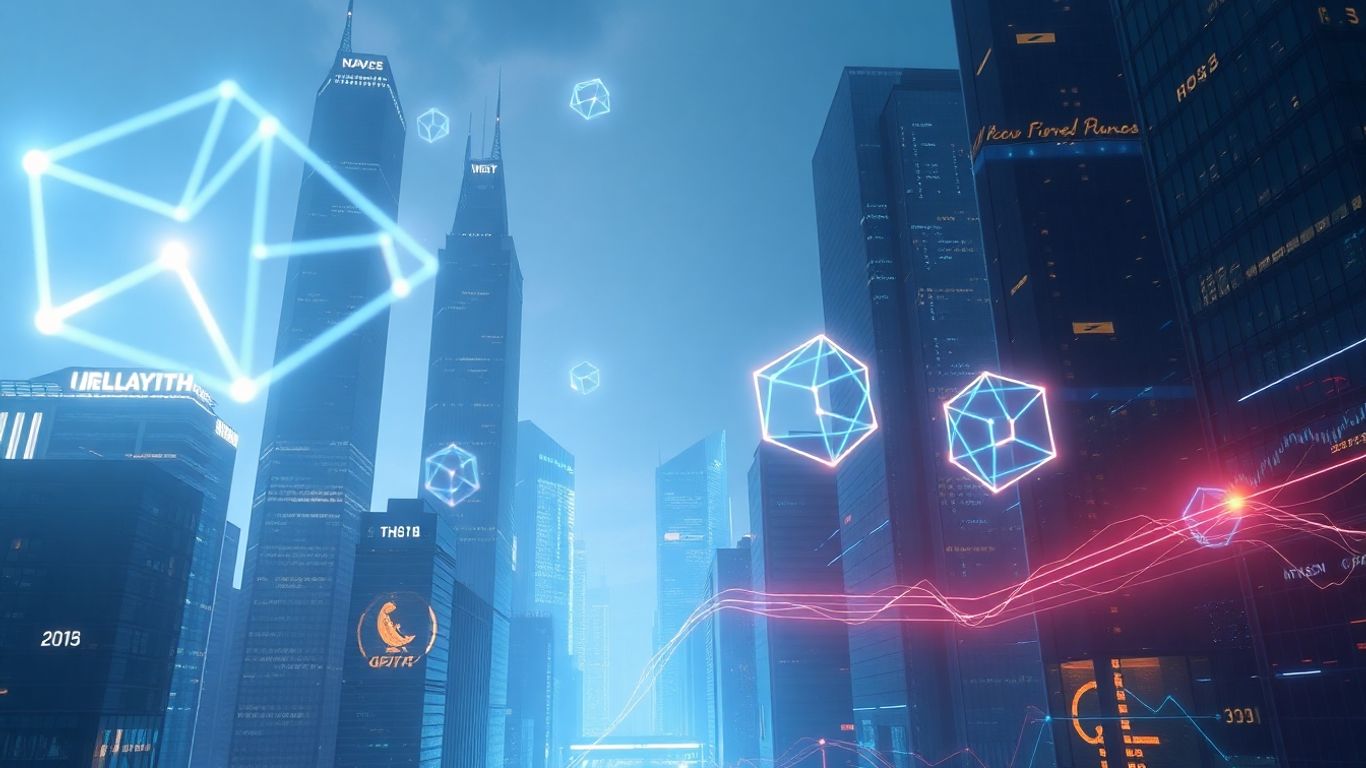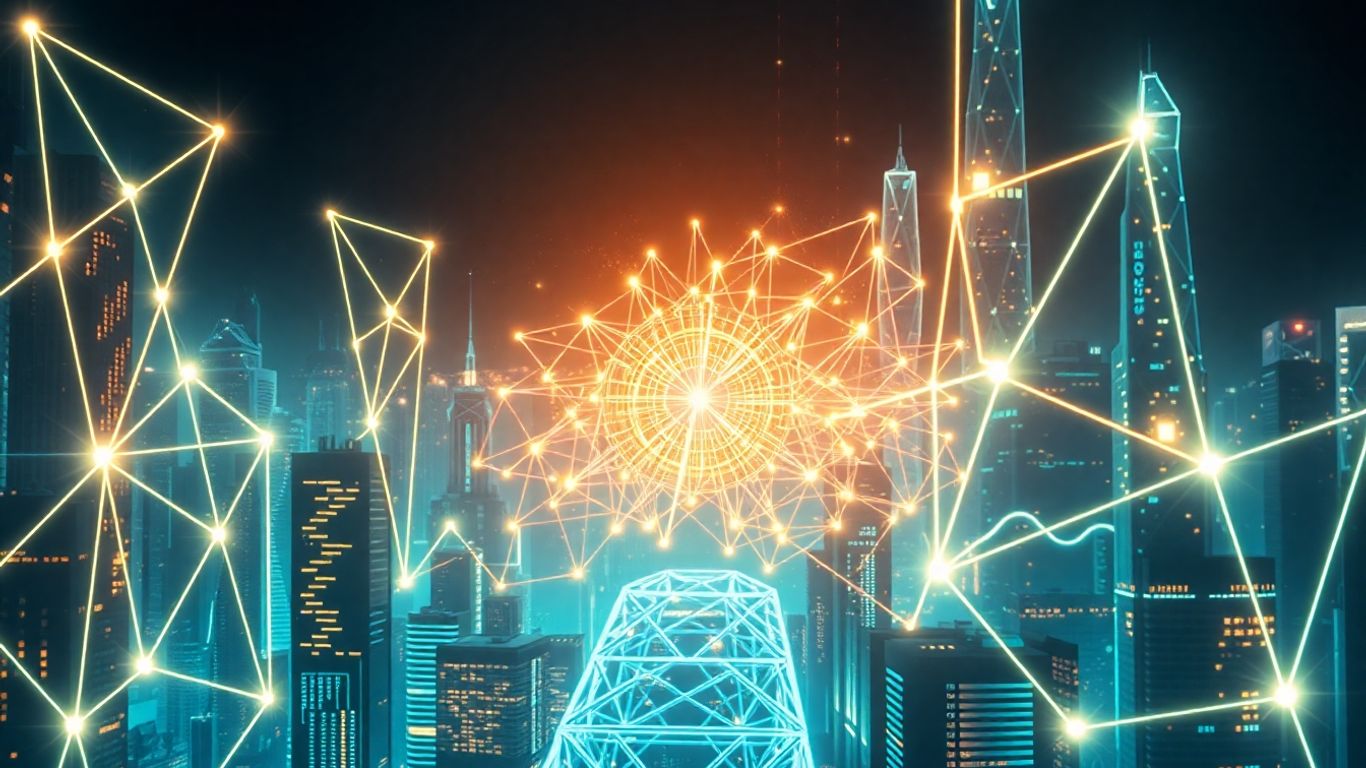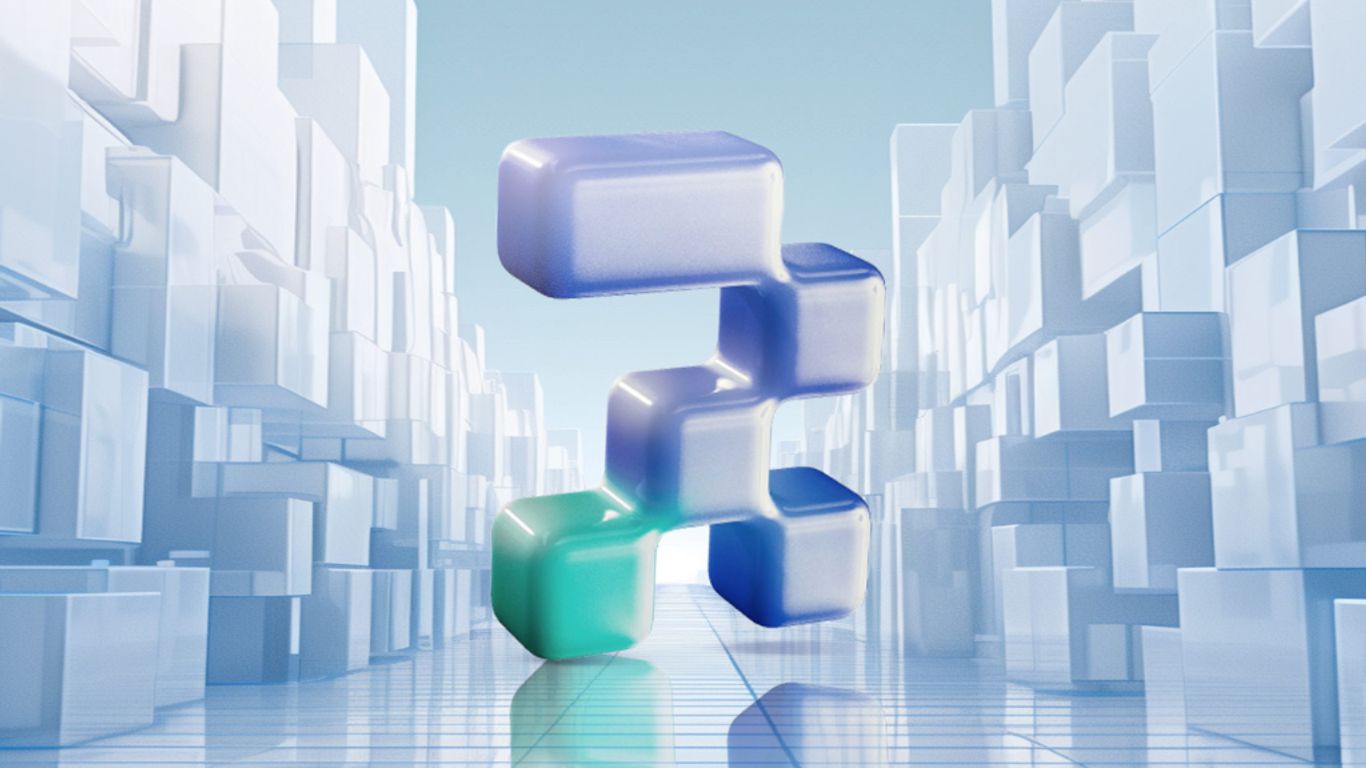You know, the financial world is always changing, and lately, it feels like things are moving at warp speed. Tokenization, which is basically turning assets into digital tokens on a blockchain, has been a big topic. It makes things more accessible and easier to trade. But what's really shaking things up now is how AI is getting involved. It’s not just a little tweak; AI is starting to really optimize how we manage these tokenized assets, making everything from valuing them to making sure they follow the rules much smoother. It's like giving the whole system a super-smart upgrade.
Key Takeaways
- AI is making asset tokenization more efficient by automating tasks like valuation and compliance checks, speeding up processes that used to take ages.
- AI helps figure out the real value of tokenized assets by looking at live market data and other signals, leading to more trustworthy prices.
- The integration of AI means we can settle trades almost instantly and cut down on the middlemen, which saves money and makes things simpler.
- AI-powered RWA analytics are helping to spot potential problems in portfolios early, like risks of losing liquidity or prices getting too high too fast.
- Autonomous AI agents are on the horizon, promising to handle trades and manage risks all by themselves, reducing the need for constant human oversight.
Revolutionizing Asset Management Through AI Integration

It's pretty wild how much things are changing in how we manage money and assets, right? Tokenization, which is basically turning real-world stuff like property or even art into digital tokens on a blockchain, has been a big deal. It makes things more accessible and easier to trade. But honestly, it still had some clunky bits, like slow settlements and figuring out what things were actually worth. That's where AI comes in, and it's really shaking things up.
Enhancing Efficiency with AI-Driven Tokenization
Think about all the paperwork and manual checks that used to go into managing assets. AI is stepping in to automate a lot of that. It can look at tons of data way faster than any person could, spotting patterns and making sure everything lines up. This means fewer mistakes and a lot less time spent on boring, repetitive tasks. AI helps make the whole tokenization process smoother, from start to finish. It's like giving the system a super-smart assistant that never gets tired.
Automating Valuation and Compliance Processes
One of the trickiest parts of asset management has always been figuring out what something is worth, especially for things that don't trade every second. AI can analyze live market data, news, and other signals to give a much more up-to-date and accurate price. Plus, keeping up with all the rules and regulations is a nightmare. AI can monitor these constantly changing laws and automatically check if your tokenized assets are compliant. It's a huge relief for anyone trying to stay on the right side of the law.
Streamlining Digital Asset Management Workflows
When you have a bunch of digital tokens representing assets, keeping track of them can get complicated. AI can help organize all of this. It can automatically sort, tag, and manage these digital assets, making them easier to find and use. This means less time searching for what you need and more time actually doing something productive with your investments. It's about making the whole system work better, faster, and with fewer headaches.
The Crucial Role of AI in Tokenized Asset Valuation
Figuring out what a tokenized asset is actually worth used to be a slow, drawn-out process. Traditional methods just weren't built for the speed of digital markets. But now, artificial intelligence is stepping in, and it's a total game-changer. AI helps us get a much clearer, more accurate picture of an asset's value, and it does it incredibly fast. This means investors can make smarter choices, and the whole market becomes more reliable.
Improving Valuation Accuracy with Live Market Signals
Think about it: markets move constantly. Prices for things like tokenized real estate or commodities can change by the minute. AI is brilliant at keeping up. It can look at all sorts of live data – trading volumes, order books, even what people are saying online about an asset – and use that to adjust valuations in real-time. This is a huge step up from older methods that might only get updated weekly or monthly. It means the price you see is much closer to what the asset is actually worth right now. This kind of live analysis is key for making sure tokenized assets are priced fairly and accurately, especially when dealing with real-world assets.
Leveraging AI for Dynamic and Trusted Pricing
AI doesn't just react to data; it learns from it. By analyzing historical price trends, market sentiment, and specific details about an asset (like occupancy rates for a tokenized building or supply chain issues for a commodity), AI can build sophisticated models. These models don't just give a single price; they can show a range of potential values and how they might shift based on different market conditions. This dynamic pricing makes the valuations more trustworthy because they're based on a deep dive into what's actually happening, not just a static estimate. It’s like having a crystal ball, but powered by data.
AI-Powered RWA Analytics for Informed Decisions
When we talk about tokenized assets, a lot of that involves real-world assets (RWAs). AI can analyze specific data related to these RWAs in ways that were previously impossible. For example:
- For tokenized real estate: AI can crunch data on local market trends, property management efficiency, and even environmental factors that might affect value.
- For tokenized commodities: It can look at weather patterns, geopolitical events, and global supply chain logistics to predict price movements.
- For tokenized private equity: AI can analyze company performance metrics, industry benchmarks, and potential future growth.
This kind of detailed analysis helps investors understand the true potential and risks associated with an RWA token, leading to much more informed investment decisions. It’s about moving beyond just the token itself and understanding the underlying value with much greater precision.
Optimizing Liquidity and Trading with AI

Liquidity is the lifeblood of any market, and for tokenized assets, it's especially important. Without enough buyers and sellers, even the most promising assets can just sit there, gathering digital dust. Traditional ways of managing liquidity often struggle to keep up with how fast digital markets move. That's where AI steps in, helping to predict where liquidity might dry up, adjust prices on the fly, and make sure trades get where they need to go without a hitch. This keeps markets active, stable, and fair, all without needing a person to constantly watch over things.
Enabling Instantaneous Atomic Settlements
Atomic settlements are a big deal in the world of tokenized assets. They mean that a trade either happens completely, with both sides getting what they're owed at the exact same moment, or it doesn't happen at all. AI can help make these settlements happen much faster and more reliably. By analyzing market conditions and potential risks in real-time, AI systems can trigger these atomic settlements with confidence. This cuts down on the time trades take to finalize and reduces the chance of one side of the deal falling through. It’s like having a super-efficient referee who makes sure everyone plays fair and finishes the game at the same time.
Reducing Intermediary Dependence and Costs
Think about how many people are usually involved in a traditional financial transaction – banks, brokers, clearinghouses. Each one adds time and cost. AI, especially when combined with blockchain technology, can cut out many of these middlemen. Smart contracts, guided by AI, can automate processes like verification and settlement. This means fewer hands touching the transaction, which usually leads to lower fees and faster processing. For investors, this translates directly into keeping more of their money and getting access to their assets quicker. It simplifies the whole process, making it more direct and less expensive.
Facilitating Programmable Liquidity Across Asset Classes
Liquidity isn't just about having buyers and sellers; it's also about how easily assets can be converted to cash or other assets. AI can help make this process more flexible and predictable. It can analyze different asset classes – like real estate tokens, art, or even future revenue streams – and figure out the best ways to provide liquidity for each. For example, AI might suggest adjusting how much of a certain asset is available for trading based on predicted demand, or it could automate the process of matching buyers and sellers for less common tokenized assets. This programmable liquidity means that assets can be traded more smoothly, no matter what they are, making the whole tokenized market more functional and accessible.
Proactive Risk Management with AI-Powered Analytics
Managing risk in the world of tokenized assets can feel like trying to hit a moving target. Things change fast, and what looked safe yesterday might be a problem today. That's where AI really steps in, giving us tools to see trouble coming before it hits us hard. It's not just about reacting anymore; it's about getting ahead of the curve.
Predictive Analytics for Portfolio Rebalancing
Think about your investment portfolio. Instead of waiting for the market to tank and then scrambling to fix things, AI can look at all sorts of data – market trends, news, even social media chatter – to predict where things might be headed. This lets you adjust your holdings before a big shift happens. For example, AI might suggest selling off some assets that look like they're about to drop or buying into ones that show promise. It's about making smarter, data-backed moves to keep your portfolio in good shape. This kind of foresight can really make a difference in your returns.
Early Warning Systems for Liquidity Droughts and Bubbles
One of the scariest things in finance is when you can't sell something because nobody's buying, or when prices get so high they're clearly not sustainable. AI can act like an early warning system for these issues. It monitors trading volumes and price movements across different markets. If it spots signs that liquidity is drying up, it can alert you. Likewise, if prices are climbing way too fast without good reason, AI can flag it as a potential bubble. This gives you a chance to get out before things get really bad. It's like having a radar for market dangers.
Monitoring Regulatory Shifts for Compliance
Keeping up with financial rules is a constant challenge, especially with new technologies like tokenized assets. Regulations can change, and staying compliant is non-negotiable. AI can help by constantly scanning legal and regulatory news from around the world. It can identify potential changes that might affect your tokenized assets or your business operations. This means you're not caught off guard by new rules. Instead, you can prepare in advance, making sure your operations stay on the right side of the law. Staying ahead of these emerging risks is key to long-term success.
AI helps us move from a reactive stance on risk to a proactive one. By analyzing vast datasets and spotting subtle patterns, it provides insights that allow for timely adjustments, preventing potential losses and ensuring smoother operations in the dynamic tokenized asset landscape.
AI Agents: The Future of Autonomous Asset Management
Think about managing your investments, but instead of you doing all the work, you have a super-smart digital assistant that handles everything. That's essentially what AI agents are bringing to the table for tokenized assets. These aren't just simple programs; they're sophisticated systems designed to operate on their own, making decisions and taking actions based on complex data and predefined goals. The big idea here is moving towards fully automated asset management, where AI handles the heavy lifting.
Autonomous Execution of Trades and Compliance
Imagine a world where trades happen the instant conditions are right, and all the necessary paperwork is handled automatically. AI agents are making this a reality. They can monitor market conditions 24/7, identify opportunities based on your investment strategy, and execute trades without any human delay. This is especially useful in the fast-paced world of tokenized assets where speed can mean the difference between profit and loss. They also keep a close eye on regulatory rules, making sure every transaction stays within legal boundaries. This means fewer mistakes and less worry about compliance.
Here's a look at how they operate:
- Trade Initiation: AI agents analyze market data, news feeds, and portfolio performance to identify optimal trading moments.
- Smart Contract Interaction: They can interact directly with smart contracts to execute trades, manage settlements, and handle token transfers.
- Compliance Checks: Before any trade is executed, agents verify that it meets all relevant regulatory requirements and internal policies.
- Post-Trade Reconciliation: After a trade, agents automatically update records and confirm the transaction's completion.
Real-Time Risk Management by AI Systems
Risk is a big part of investing, and AI agents are becoming incredibly good at spotting and managing it. They can constantly scan portfolios for potential dangers, like sudden market drops or unexpected news. If they detect a problem, they can react instantly. This might mean automatically adjusting the portfolio to reduce exposure to a risky asset or even halting trading if conditions become too volatile. It's like having a vigilant guardian for your assets, working around the clock.
The ability of AI agents to process vast amounts of data in real-time allows them to identify subtle patterns and anomalies that human managers might miss. This proactive approach to risk mitigation is a significant step forward in protecting investment value.
Reducing Human Dependency in Asset Operations
Let's be honest, managing assets can be a lot of work. There are countless tasks, from data entry to performance reporting, that can be time-consuming and prone to human error. AI agents can take over many of these operational duties. This frees up human professionals to focus on higher-level strategy, client relationships, and complex problem-solving. It's not about replacing people entirely, but about making the whole system more efficient and less reliant on manual effort for routine tasks. This shift can lead to lower operational costs and faster processing times across the board.
Bridging Traditional and Decentralized Finance with AI
It's pretty wild how AI is starting to connect the dots between the old way of doing finance and the new, decentralized world. Think of AI as the translator, making sure both sides understand each other. This means we can take assets, like a piece of real estate or even a company's debt, and represent them as digital tokens. But here's the cool part: these tokens aren't just static digital copies. AI can build in smart features, almost like giving the token a brain.
AI as the Connective Layer Between Markets
So, how does this actually work? Well, AI can act as a go-between. It helps make sure that when we tokenize assets, they still follow all the rules and regulations that traditional finance has. At the same time, it lets us use the super-fast, automated systems that blockchain offers. This means we can get the best of both worlds: the security and structure of traditional finance, combined with the speed and flexibility of decentralized systems. It’s like having a bridge that’s both sturdy and incredibly efficient.
Embedding Dynamic Market Intelligence into Tokens
Imagine a token that doesn't just represent an asset, but also knows what's happening in the market. AI can do that. It can analyze tons of data – news, economic reports, even social media chatter – and feed that intelligence directly into the token. This means the token can change its behavior or its pricing based on real-time market conditions. It's not just a digital certificate anymore; it's an active participant in the market, constantly adapting.
- Predictive Pricing: AI can forecast how an asset's value might change based on current trends.
- Automated Risk Adjustments: If market risks increase, the token's parameters can automatically adjust to reflect that.
- Performance Forecasting: Tokens can carry embedded insights into their potential future returns.
Achieving Institutional Compliance with Decentralized Execution
This is a big one for getting big players involved. Traditional finance has a lot of rules, and for good reason. AI can help tokenized assets meet those requirements, like knowing who owns what and making sure transactions are legitimate. But instead of relying on slow, old systems to check all these boxes, AI can work with smart contracts on the blockchain to do it automatically and instantly. This means we can have the trust and oversight that institutions need, but with the speed and lower costs of decentralized technology. It’s a game-changer for making tokenized assets a serious option for large-scale investment.
The integration of AI into tokenization platforms is solving long-standing financial problems that have slowed down adoption. By combining tokenization with advanced AI, we're seeing real improvements in how assets are managed and traded.
The Road Ahead: AI and Tokenized Assets
So, where does all this leave us? It's pretty clear that AI isn't just a fancy add-on for tokenized assets anymore; it's becoming the engine that makes everything run smoother. We've seen how it helps figure out what things are really worth, makes trading less of a hassle, and even spots problems before they get big. This isn't some far-off future thing either; it's happening now, making markets more open and giving more people a chance to get involved. As this tech keeps getting better, expect tokenized assets to become even more common and easier to manage. It's a big shift, and businesses that get on board now are likely to be the ones leading the pack in the years to come.
Frequently Asked Questions
What exactly is tokenized asset management, and why is AI important for it?
Tokenized asset management is like turning real-world things, such as buildings or art, into digital pieces called tokens on a computer network (blockchain). This makes them easier to buy, sell, and share. AI, which is like smart computer programs, helps manage these tokens much faster and more accurately. It can help figure out what the tokens are worth, make sure everything is legal, and even automate tasks that people used to do, making the whole process smoother and more efficient.
How does AI help make sure tokenized assets are priced correctly?
Figuring out the right price for digital tokens can be tricky. AI looks at tons of information, like current market trends, how much people want a specific token, and past price changes. By analyzing all this data super quickly, AI can help set a fair and accurate price that changes as the market does, making it more trustworthy for everyone involved.
Can AI make it easier to buy and sell these digital tokens?
Yes, absolutely! AI helps make trading these tokens much simpler and quicker. It can help match buyers and sellers instantly and even allow for very small pieces of expensive assets to be owned by many people. This means more people can get involved in investing, and it reduces the need for middlemen, which can save time and money.
How does AI help manage the risks involved with tokenized assets?
Investing always has risks, and AI can act like an early warning system. It can predict when the market might go up or down, helping investors adjust their collections of tokens before big changes happen. It can also spot potential problems like prices dropping too fast or when it might be hard to sell tokens, giving people a heads-up to make smart moves.
What are AI agents, and how will they change asset management in the future?
Think of AI agents as super-smart digital assistants. In the future, they'll be able to manage tokenized assets all by themselves! They could automatically buy or sell tokens, keep track of rules and regulations, and manage risks around the clock without needing a person to tell them what to do. This could make asset management much faster and less prone to human mistakes.
Can AI help connect the old way of finance with the new digital way?
Definitely. AI acts like a bridge between traditional banks and investments and the newer world of digital tokens. It helps make sure that even though trades are happening digitally and quickly, they still follow all the important rules that big financial institutions need to follow. This makes it easier for both old and new financial worlds to work together smoothly.




